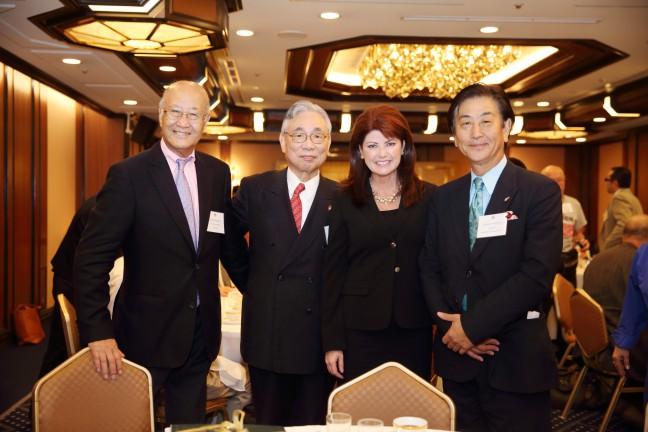After an eight day trip to Asia, Lt. Gov. Rebecca Kleefisch returned to Wisconsin optimistic about the state’s future export opportunities with Japan and Taiwan.
Kleefisch said the fact that 95 percent of the world’s customers do not live in the United States drove her and Wisconsin Economic Development Corporation executives to promote Wisconsin business internationally.
According to a statement released by WEDC, Wisconsin exported $900 million worth of goods to Japan and $181 million to Taiwan in 2014.
By increasing international exports, Kleefisch said Wisconsin would help protect itself from hard economic times in the future. By having customers outside of the United States, a national economic downturn would not be as catastrophic for the state since it would still have unaffected customers able to buy Wisconsin products, according to Kleefisch.
“It is a great way to make sure that any future economic downturn does not dig into our job creators’ ability to support families and employees,” Kleefisch said.

Photo Courtesy of Rebecca Kleefisch
Kleefisch said she worked with WEDC to promote investment in several state industry sectors: energy power and control, advanced manufacturing, food and beverage, fresh water technology and aerospace and aviation.
Kleefisch said Wisconsin stands out to Japanese business investors in particular because of its “educated” and “ethical” workforce. She said Japanese culture fosters an appreciation for people who value “the diligence that comes with good labor” and that Wisconsin workers operate with the same appreciation.
The Wisconsin workforce is supplemented by the 580,000 students it educates daily and who go on to produce “quality goods and services,” Kleefisch said.
“Quality and value are a hot commodity when it comes to doing business globally and we have those things in Wisconsin on a scale that other states just can’t match,” Kleefisch said.
While Kleefisch and WEDC did not finalize any deals on the trip, she believes one could potentially be announced in the next couple of months. She said the way business is conducted in Asia relies on greater developed relationships than in the U.S.
Kleefisch said face time and building strong connections between partners are essential components of Asian business culture. This foundation can cause a deal which may take six months to finalize in the U.S. to take seven to 10 years with an Asian country said Kleefisch.
“It is important that we be respectful of that business culture and so we are and we’re playing in that space now unlike in the past and that’s exciting” Kleefisch said.
Kleefisch said she definitely believes Wisconsin will experience an increase in foreign investment because the sectors Kleefisch and WEDC promoted in particular are ones which Japanese and Taiwanese companies work with daily.
In addition, Kleefisch said she sees more exports coming out of the trip and possibly more imports in the future.
“I think we have potential for some great synergies and hopefully this trip was the beginning of a number of really terrific relationships,” Kleefisch said.














